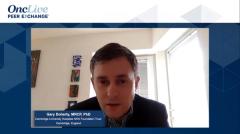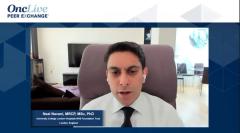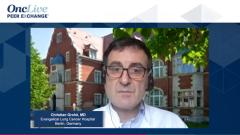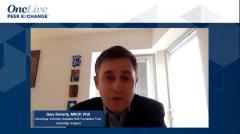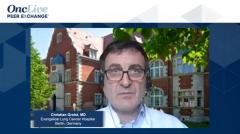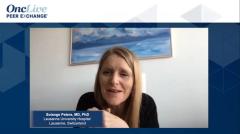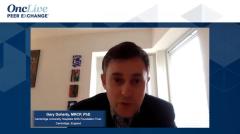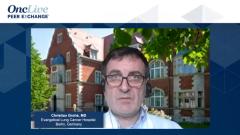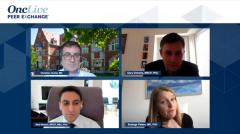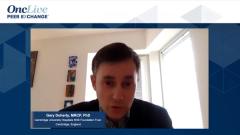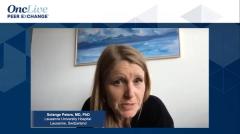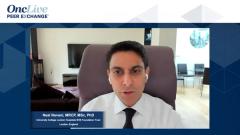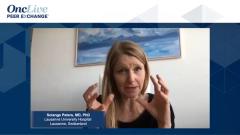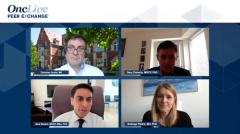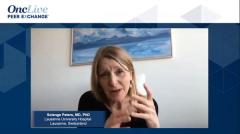
Adjuvant TKIs for Patients With EGFR-Mutated NSCLC
Christian Grohé, MD, comments on results of clinical trials studying EGFR-TKI combination regimens in NSCLC and highlights the need for composite end points that include quality of life and disease control.
Episodes in this series

Neal Navani, MRCP, MSc, PhD: Let’s move on to discuss adjuvant TKIs [tyrosine kinase inhibitors] for our population with surgical EGFR mutations. There have been a number of trials already in this area, using erlotinib and gefitinib as well. Can you tell us a little about those trials?
Christian Grohé, MD: Based on the overall distribution patterns of the prevalence of EGFR mutations, a lot of these studies have been initiated and carried out in eastern Asia. Simply, none of us needed to treat and recruit for clinical studies. Sometimes this can be a challenge. In that context, it’s interesting that we have data from patients who took gefitinib, for instance, or a couple of other options. The most cited study we’ve discussed lately is the C-TONG 0804 trial because they have finally come up with overall survival data. Before that we had the RADIANT trial, the EVAN trial, and the SELECT-1 trial. With all these trials, we sometimes have problems. They were not powered for the EGFR-mutated cohort, and these were subsets of information we have obtained. For the C-TONG trial, the disease-free survival [DFS] statistical analysis was excellent, but overall survival [OS] was not as good and not as positive as we had anticipated. It’s very frank to say that they’re important landmarks in trying to understand screening for EGFR mutations in adenocarcinoma in the adjuvant setting. Look for the right stage. We have the problem that we have shifted from the seventh to the eighth edition, so obviously it’s all about stage IIA instead of IB in terms of the smaller primary tumor size. Overall, we should screen for these; this is the take-home message for me. We should screen for EGFR mutations in the adjuvant setting. Yes, they have a benefit. We still must understand why the DFS, which is so impressive in some of these studies, does not translate into an OS benefit. Overall, this is something we have to learn more about. We need to know more about recurrence patterns, surveillance of these patients, and how to use comutations and coaberrations to understand what patient cohort will fail early and will not respond properly to a TKI treatment.
Neal Navani, MRCP, MSc, PhD: Thank you. Based on the trials of erlotinib and gefitinib, why do we think that they haven’t influenced practice previously? Is it simply a lack of magnitude of the effect?
Christian Grohé, MD: I think so. We do see a significant portion of patients who had a benefit with overall outcome, in particular in the C-TONG trial, but overall survival was not different. Saying that, we run into the same problem we have in the neoadjuvant setting. In the neoadjuvant setting, our end point is something like major pathologic response. In the adjuvant setting, we talk about DFS, and at the World Conference on Lung Cancer meeting, Silvia Novello presented the data from our ITACA trial, and the number of years it takes you to randomize these data sets is 10 to 15 years. In a decade, we will discuss early the repertoire of results and clinical practice. This is a long period of time. For that reason, I think we need other end points that have the impact to change the clinical practice. In the adjuvant setting, DFS alone and OS are the long-term outcomes we look and wait for. This can be a problem when we try to help patients with mutations at an early stage. We have to come up with a more complex and composite end point program for these patients, 1 that includes quality of life and control of disease burden as factors.
Transcript Edited for Clarity


